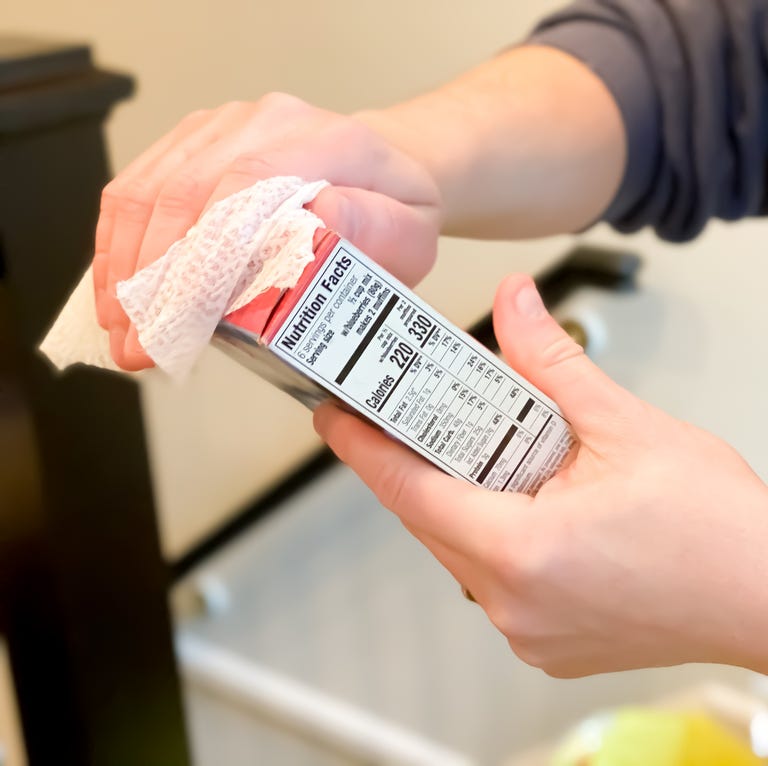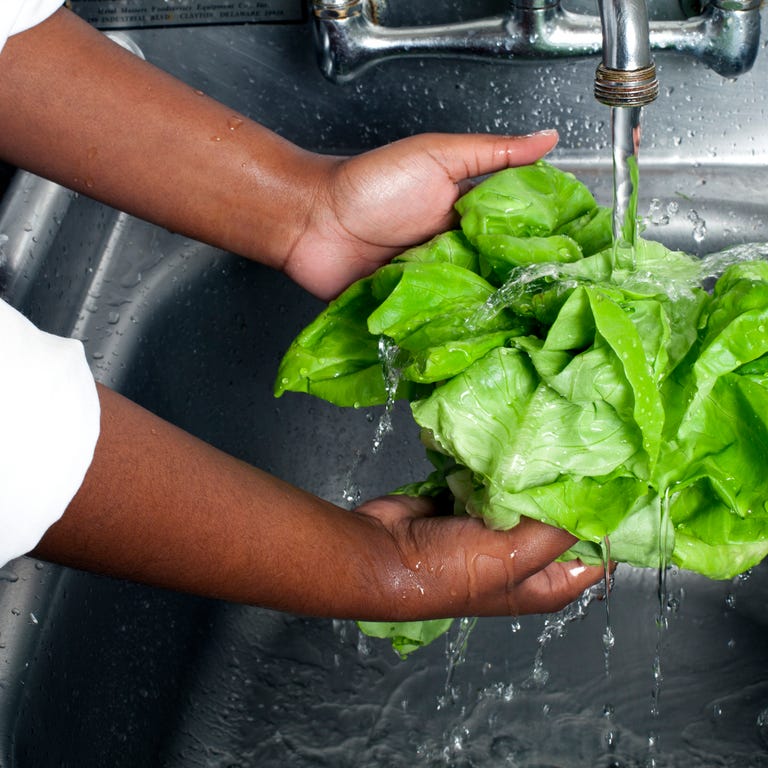A public health expert explains the truth about COVID-19 and groceries.
By Paul Kita  TommL
TommL
If you’ve been to the grocery store during the coronavirus COVID-19, you’ve likely felt some mixture of anxiety, loneliness, fear, confusion, frustration, and maybe even paranoia.
And if you’ve turned to social media for help with grocery shopping during the coronavirus, you’ve likely also felt a mixture of all those things—except heightened twofold.
Take, for instance, the following YouTube video, created by Dr. Jeffrey VanWingen, who states he is a family physician in Grand Rapids, Michigan.
The video has been viewed more than 20 million times and has more than 20,000 comments. But how much truth is there to some of the claims made in this video?
- Do you really need to leave your groceries in your trunk or garage for three days to prevent the spread of the coronavirus?
- Do you need to spray bleach on products in order to preserve their safety?
- And, as Dr. VanWingen instructs, must you wash certain types of produce in soapy water for 20 seconds?
To determine whether or not these statements—and others made on social media about supermarket shopping during COVID-19— are true, we turned to Chrysan Cronin, DrPH, MPH, a professor of public health at Muhlenberg College. She teaches Infectious Disease Epidemiology and Occupational and Environmental Health. Advertisement – Continue Reading Below
Her perspective will, hopefully, help to alleviate your mixture of anxiety, loneliness, fear, confusion, frustration, and maybe even paranoia.
Is it accurate to say that coronavirus can live in an aerosolized environment for three hours, on cardboard for one hour, and can live on plastic and metal surfaces for three days?
Dr. VanWingen states that this is true, according to a New England Journal of Medicine Study—except that it’s not the whole story.
“The NEJM article did report these findings,” Cronin says. “However, this information has been presented out of context.”
Cronin cites the work of Carolyn Machamer, a professor at Johns Hopkins School of Medicine who studies coronaviruses.
“The virus may last that long on surfaces, but there is only a very small percentage of viral particles left (less than 0.1%) after a few days, so it’s highly unlikely to cause infection,” Cronin says.
Plus, lab conditions are not supermarket conditions.
“Aerosolized particles that are used in lab studies are much lighter and smaller than what typically comes out of a person so they stay in the air longer than would normally occur in a non-experimental environment,” Cronin says.
Should people try to leave their groceries for three days in their car or garage in order to prevent the spread of COVID-19?

Paul Taylor
No.
“There is no evidence that suggests that the virus has been or can be transmitted from groceries. The probability of this is extremely low,” says Cronin.
So while grocery bags and groceries themselves may not be carriers of the virus, grocery shopping is still a situation where you may pick up or transmit the disease.
“Certainly following good hygiene habits is crucial. Don’t go shopping if you’re sick, wipe down the cart with a sanitizing wipe, wash or sanitize your hands when you’re done, and physically distance yourself from others as much as you can in the store,” says Cronin. Advertisement – Continue Reading Below
“It is highly unlikely that your can of tuna will infect you, but another human walking past you and coughing just might.”
Plus, leaving your groceries in your garage may attract a real threat: vermin.
Do you need to wipe down groceries that were touched by human hands before putting them into your home?

Catherine McQueen
Again, no.
“My advice is to just wash your hands after you put them away,” Cronin says.
And, look, just in case your argument is “But this is just one experts opinion versus another,” consider that the FDA and CDC state the following:
Currently there is no evidence of food or food packaging being associated with transmission of COVID-19. It may be possible that a person can get COVID-19 by touching a surface or object that has the virus on it and then touching their mouth, nose, or possibly their eyes, but this is not thought to be the main way the virus spreads.
Do you need to wash or soak your fruits and vegetables in soapy water for 20 seconds to prevent COVID-19?

Naila Ruechel
No, for the same reasons cited in the above.
“My advice is to just wash your hands after you put them away. You should always wash off your produce with water—coronavirus or not—but I would not recommend using soap. Soap can be very irritating to the digestive tract even in small amounts,” Cronin says.
The Bottom Line on the Coronavirus and Grocery Shopping
“I want to say that as a Public Health person, I would rather see a video that is overreactive than under-reactive as long as it’s not dangerous,” Cronin says.
In reference to Dr. VanWingen’s video directly: “If it makes you feel better and more in control of the situation, and you have time to spare, then there is no harm to what he suggests.”
She continues: “I do worry that some people will misinterpret what he is saying and either leave all of their food in the garage for three days (even perishable) or that they will start spraying Lysol disinfectant all over it—both of which will make them sick.”

